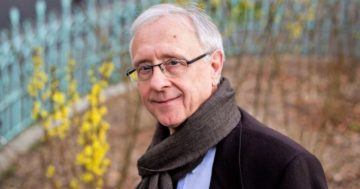Daniel Mahoney in The New Criterion:
 The distinguished contemporary French political philosopher Pierre Manent has spent four decades chronicling the development of modern self-consciousness, including the flight from human nature and “the moral contents of life” that define modern self-understanding in its most radical forms. Manent’s work combines penetrating analyses of great works of political, philosophical, and religious reflection with judicious independent thought. In both, he illumines the interpenetration of politics and the things of the soul. That dialectical melding of politics and soul permanently defines the human condition, even in the most remote times and climes.
The distinguished contemporary French political philosopher Pierre Manent has spent four decades chronicling the development of modern self-consciousness, including the flight from human nature and “the moral contents of life” that define modern self-understanding in its most radical forms. Manent’s work combines penetrating analyses of great works of political, philosophical, and religious reflection with judicious independent thought. In both, he illumines the interpenetration of politics and the things of the soul. That dialectical melding of politics and soul permanently defines the human condition, even in the most remote times and climes.
Manent continues that work with learning and grace in Montaigne: Life without Law.1 Montaigne (1533–92) is much more than a literary figure for Manent. His Montaigne is first and foremost a philosopher and a moral reformer, even a founder of one vitally important strain of modern self-understanding. In this new form of consciousness, human beings take their bearing neither from great models of heroism or sanctity or wisdom, nor from natural and divine law. Rather, Montaigne asks his readers to eschew self-transcending admiration for others, no matter how exemplary great souls may seem to be. He wishes those who follow him to reject the path of repentance for sins, and to bow before the demands and requirements of one’s unique self, what he calls one’s “master-form.”
More here.
